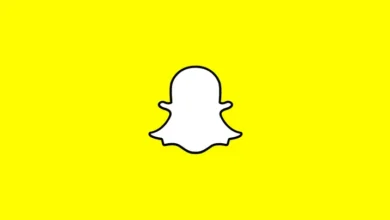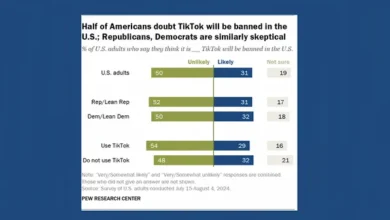
So, X has now been banned in Brazil, after refusing to comply with Brazilian court orders to remove the accounts of seven anti-government commentators which it claims have contributed to ongoing unrest in the region.
Though the actual specifics here are in question, with X itself claiming that it hasn’t been given enough information to justifiably action this request. Which is why it’s decided to oppose the court order, and as of right now at least, it doesn’t seem like the two sides will be coming to a compromise anytime soon.
Here’s an overview of the key considerations in X’s Brazilian ban.
Why has X been banned in Brazil?
Back in April, the Brazilian Supreme Court ordered X to comply with government orders to suppress certain accounts which Brazilian leadership determined to have been spreading false reports and hate speech. X refused to action the request, saying that it was not legal (under Brazilian law), and also not within its new “free speech” aligned moderation approach.
The case has gone back and forth over the last few months, but then two weeks back, under threat of arrest for local staff due to its failure to comply, X decided to shut down its Brazilian office and evacuate its employees.
Brazilian authorities then demanded that X nominate a legal representative in the region, and upon failing to do so (because that representative would also be arrested), the entire platform was then suspended from operating in Brazil late last week.
What are the penalties and restrictions in place?
Brazil has implemented a full ban on X, and has ordered to App Store and Google Play Store to remove the app from their platforms. The court has also threatened fines of up to $US8,900 per violation for people trying to use X via a VPN, thereby hiding their location.
What have the accounts in question posted?
The main point at issue stems from seemingly unfounded claims that the 2022 Brazilian election was rigged.
After the results were announced for the 2022 poll, former President Jair Bolsonaro, who lost the count, claimed that electronic ballot machines had been hacked, and that the result was then unjustly weighted against him. Bolsonaro’s claims resonated with his supporters, and much like the January 6th riots in the U.S., Bolsonaro’s supporters also staged protests, which saw Brazil’s Congress, presidential palace and Supreme Court subject to attack.
Over 300 people were arrested as a result, while Bolsonaro, who fled Brazil shortly after the poll, has since been banned from running for office for eight years for undermining Brazilian democracy with his false claims.
The seven X accounts identified in the Brazilian Supreme Court’s request are all associated with Bolsonaro’s government, and have all refused to accept the results of the 2022 poll.
The concern, then, appears to be that these accounts are continuing to contribute to unrest and dissent by maintaining such claims.
It’s worth noting, too, that Elon Musk was a strong supporter of Bolsonaro, and had arranged several business deals, including for the provision of internet services via Starlink in Brazil, during Bolsonaro’s presidency. Those deals have not been upheld by the new government.
What are the impacts for X?
Well, the immediate impact is the loss of around 20 million users, and all the associated ad dollars in the region.
In terms of users, that reduces X’s monetizable daily active user count from 250 million to 230 million overnight. Which is a blow within itself, while X also recently reported that it’s lost around 5 million users in Europe this year too.
So X, at this stage, appears to be down around 10% of its user base this year, which is a big impact for a company that’s struggling to win back ad dollars.
On that front, X’s revenue is reportedly down around 83% on what it had been before Musk took over at the app, though the majority of that impact is in the U.S., where X has traditionally generated around 55% of its revenue.
Musk has said that ad spend in other regions has remained relatively steady, a minor saving grace for the platform. But the removal of Brazil from that equation will have an impact.
X/Twitter has been growing its business in Brazil over time, and it’s steadily become a key contributor to its bottom line. It’s still a minor market overall, with X generating around 30% of its revenue from markets outside of the U.S. and Japan. But at a time when the company is still bleeding cash, it’s going to be a significant concern.
At this stage, based on X’s heavy debt burden, as a result of Musk’s purchase of the company (Musk borrowed $13 billion to acquire the company, with that debt linked to X itself, not Musk personally), X is seemingly on track to post a significant loss this year.
Of course, there may be ways for one of the richest men in the world to find alternative avenues to funnel money into the app, with xAI seemingly one path to redirect funds into X. But at some stage, if X doesn’t get its business on the right track, Musk and his partners in the project will likely need to cut their losses.
Brazil is a lesser element overall, but at this stage, every loss is significant.
But X has abided by other requests in other regions?
Yes, X has notably complied with similar requests in Turkey, India, and Germany, while it also intended to comply with the Brazilian requests as well, in the initial stages.
The difference, in this instance, according to X, is that the Brazilian Government’s latest requests are in violation of Brazilian law. X has always said that it will comply with local laws, but as this is not in line with even local legal parameters, it’s taking a stand.
Further speculation has suggested that Elon Musk is more opposed to these requests because he is a supporter of Bolsonaro, and has lost out on several deals for his companies as a result of Bolsonaro’s 2022 election loss. But this is only speculation. We can’t know what Musk’s personal motivations may be in this case.
What comes next?
In some ways, Elon’s painted himself into a corner by making such a grand, public stand against these Brazilian requests, because any concession now would be seen as backing down, and bowing to pressure from Brazilian officials.
And that’s not to say that he should. If Elon firmly believes that the request is illegal, it may well be fundamental to his mission at X to hold firm against it. But the ultimate impact then will be loss of revenue and usage, with Brazilian users already fleeing to other apps.
Will they come back if X is reinstated? Will advertisers come back if X is viewed as a lesser platform in the wake of this action? The impacts, essentially, are all bad for X from a business standpoint.
But maybe, in line with Elon’s free speech push, that’s a risk that he simply has to take.




